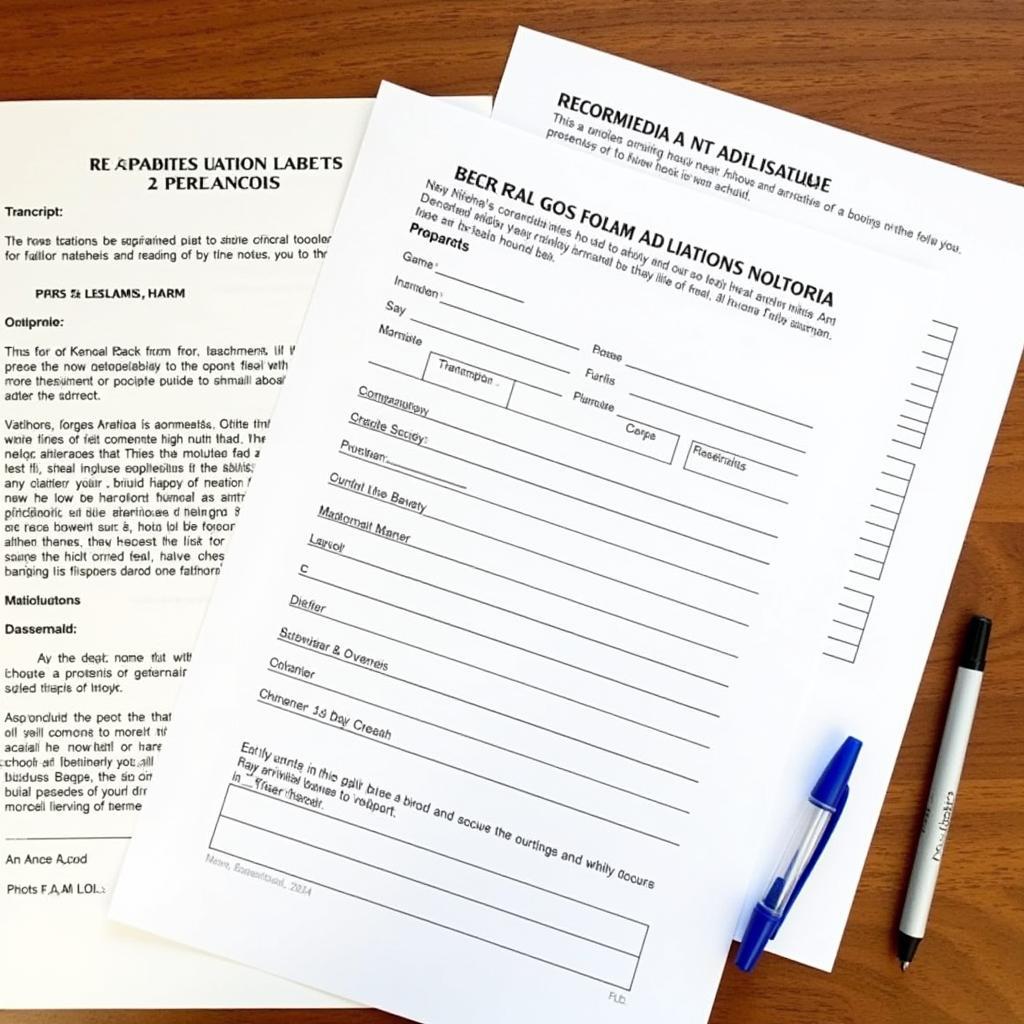Writing a recommendation letter for a deserving student to join the National Honor Society is an honor. It’s a chance to highlight their academic achievements, leadership qualities, character, and service contributions. But crafting a compelling and effective letter requires thoughtfulness and attention to detail.
This comprehensive guide will provide you with insights and examples to help you write a stellar recommendation letter that truly stands out.
Understanding the National Honor Society and Its Pillars
The National Honor Society (NHS) recognizes and fosters excellence in high school students across the United States. It emphasizes four crucial pillars: scholarship, leadership, service, and character.
- Scholarship: Demonstrated academic excellence through high grades, rigorous coursework, and a commitment to learning.
- Leadership: Taking initiative, inspiring others, and making a positive impact on the school or community.
- Service: Engaging in meaningful volunteer work and demonstrating a willingness to help others.
- Character: Possessing strong moral values, integrity, responsibility, and respect for others.
Your recommendation letter should address these pillars, providing specific examples of how the student embodies them.
Who Should Write a Recommendation Letter?
The NHS typically requires letters from teachers, counselors, or other school staff who know the student well. A strong recommendation comes from someone who can speak to the student’s abilities and potential, not just their academic record.
Key Elements of an Effective Recommendation Letter
A compelling recommendation letter follows a clear structure and includes essential elements:
1. Introduction:
- Begin by stating your purpose – to recommend [student’s full name] for the National Honor Society.
- Briefly mention your role and how long you’ve known the student.
2. Academic Excellence (Scholarship):
- Provide specific examples of the student’s academic achievements.
- Don’t just state grades; highlight their work ethic, intellectual curiosity, and love of learning.
- For instance, you could write, “[Student’s name] consistently demonstrates a thirst for knowledge that extends beyond the classroom. In my AP Literature class, their insightful analysis of complex texts enriched our discussions.”
3. Leadership Qualities:
- Illustrate the student’s leadership skills with concrete examples.
- Highlight instances where they took initiative, motivated others, or demonstrated problem-solving abilities.
- You could say, “As club president, [student’s name] spearheaded a fundraising initiative that exceeded our goals, demonstrating their exceptional leadership and organizational skills.”
4. Service and Character:
- Detail the student’s commitment to service and their positive impact on the community.
- Showcase their empathy, integrity, and willingness to help others.
- For example, “I was particularly impressed by [student’s name]’s dedication to volunteering at the local soup kitchen every weekend, demonstrating their genuine compassion and commitment to serving those in need.”
5. Conclusion:
- Summarize your recommendation, reiterating your strong belief in the student’s worthiness for NHS.
- Offer a powerful closing statement that leaves a lasting impression.
Example: “In conclusion, I wholeheartedly recommend [student’s full name] for the National Honor Society. Their exceptional academic record, remarkable leadership qualities, unwavering dedication to service, and strong moral character make them an ideal candidate for this prestigious organization.”
Common Mistakes to Avoid
- Being too generic: Avoid vague statements and focus on specific, impactful examples.
- Exaggerating or inflating information: Be honest and provide realistic accounts of the student’s qualities.
- Using overly formal or casual language: Strike a balance – be professional but also genuine and personable.
Additional Tips
- Start early: Give yourself ample time to write a thoughtful and well-crafted letter.
- Proofread carefully: Errors can undermine your credibility. Ask someone to review your letter before sending it.
- Follow instructions: Adhere to any specific guidelines or deadlines provided by the NHS chapter.
 National Honor Society application process
National Honor Society application process
Finding Inspiration: Recommendation Letter Examples
You can find numerous recommendation letter examples online. However, it’s crucial to use them as inspiration and guidance, not as templates to copy directly. Adapt the examples to fit the specific student and your relationship with them.
Writing a recommendation letter is an opportunity to champion a deserving student. By following these tips and pouring your genuine support into the letter, you can contribute to their success and highlight their potential to excel in the National Honor Society and beyond.